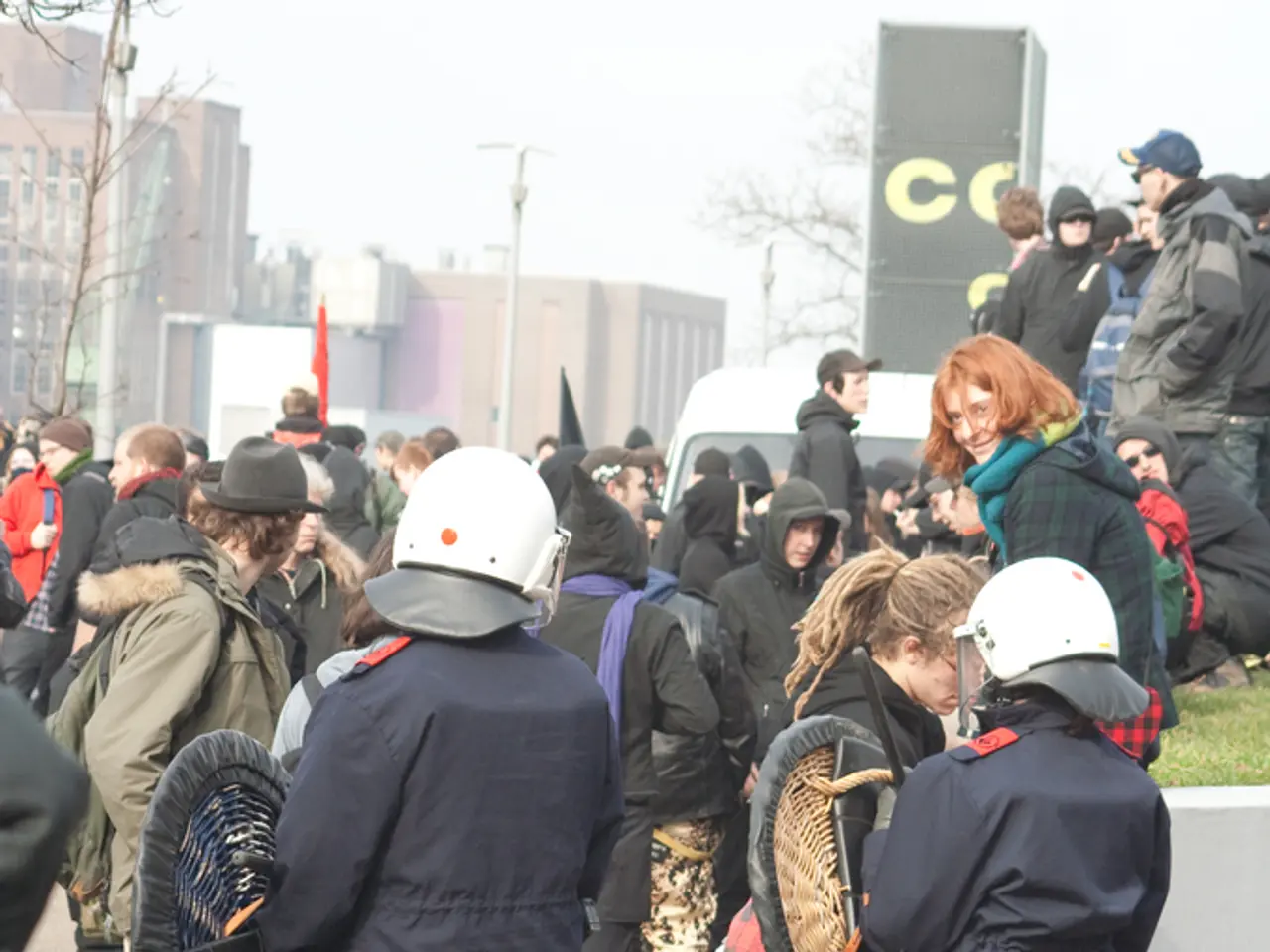Haiti Imposes a Three-Month State of Emergency due to Escalating Gang Violence
The situation in Haiti's Artibonite department has reached a critical point, with gangs controlling large areas and intensifying attacks on communities. Over 1,000 people have been killed, hundreds have been kidnapped, and many more have been displaced between October 2024 and June 2025.
The United Nations estimates that 4,864 people were killed from October 2024 to June of this year, with the majority of the violence concentrated in Haiti's capital, Port-au-Prince, where up to 90% of the city is under the control of armed groups. However, the violence has been spreading to other parts of the country, including the Artibonite department, known as Haiti's "rice basket."
The crisis deepened following the assassination of President Jovenel Moise in July 2021, creating a power vacuum. The Transitional Presidential Council, charged with holding elections by February 2026, has been struggling to maintain order. Laurent Saint-Cyr, a wealthy businessman, recently took over as president of the Transitional Presidential Council, replacing the previous interim leader.
To combat the crisis, the Haitian government declared a three-month state of emergency starting August 2025, covering Artibonite, West, and Center departments. The aim is to combat insecurity and respond to the agricultural and food crisis. A new interim director general for the National Police was appointed to strengthen law enforcement efforts, and the police are collaborating with Kenyan police officers as part of a U.N.-backed multinational security mission to suppress gang violence.
Recommendations from the U.N. include strengthening judicial units specialized in gang-related crimes, vetting police forces, protecting civilians, and intensifying measures against arms trafficking. However, these efforts are challenged by underfunding and the gangs’ control of up to 90% of Port-au-Prince.
The humanitarian impact is acute, especially for women and girls who face heightened risks of sexual and gender-based violence. Humanitarian agencies like UNFPA have been providing sexual and reproductive health services, psychosocial support, and violence prevention programs despite severe funding shortages, reaching thousands in displaced populations.
Andre Jonas Vladimir Paraison, the new interim director of Haiti's National Police, was appointed to lead the fight against gang violence. Paraison was on duty as a police officer when President Moise was killed at his private residence in July 2021. Prior to his appointment, Paraison served as head of security of Haiti's National Palace.
The humanitarian crisis in Haiti continues to strain local capacities and service delivery, with nearly 1.3 million people displaced across the country, according to the International Organization for Migration (IOM). The situation remains precarious, and efforts to restore stability and provide aid are ongoing.
[1] UN Office of the High Commissioner for Human Rights [2] United Nations Security Council [3] Associated Press [4] United Nations Population Fund
- Amidst the intensifying violence and earthquake aftermath, Haiti's political landscape is fraught with challenges, as the United Nations Security Council discusses imposing sanctions on armed gang leaders responsible for human rights abuses in war-and-conflicts zones such as Port-au-Prince and Artibonite department.
- In the midst of this political turmoil, the United Nations Office of the High Commissioner for Human Rights has emphasized the need for policy-and-legislation reform, focusing on the protection of human rights and strengthening judicial units that specialize in crime-and-justice, including gang-related crimes.
- As part of the general news, the business community, particularly foreign investors, has shown concern about the escalating war-and-conflicts, crime-and-justice, and political instability, with some expressing reservations about expanding their operations in Haiti.
- The Associated Press reported that domestic and international non-governmental organizations, such as the United Nations Population Fund (UNFPA), are urging for increased funding to combat the humanitarian crisis, address the agricultural and food crisis, and provide vital services like sexual and reproductive health support to displaced communities.






